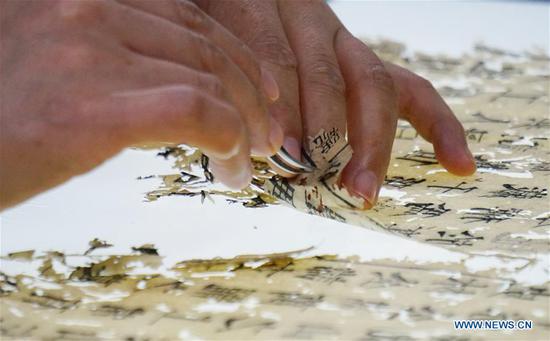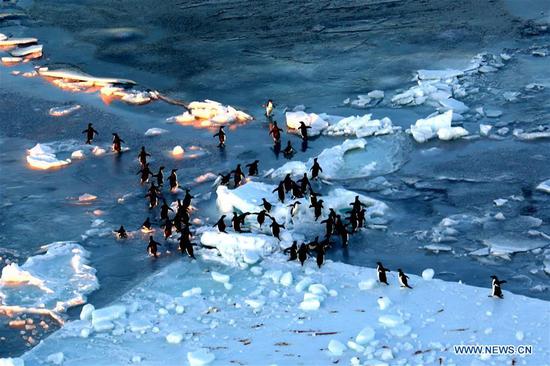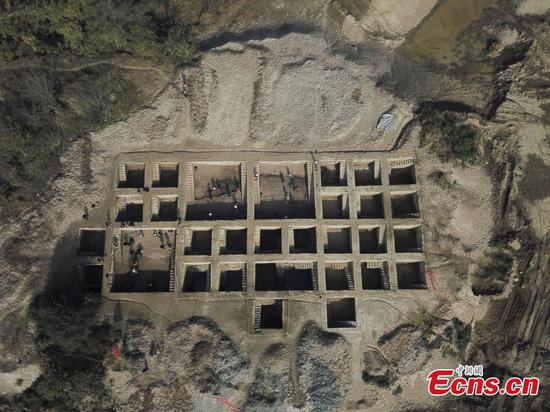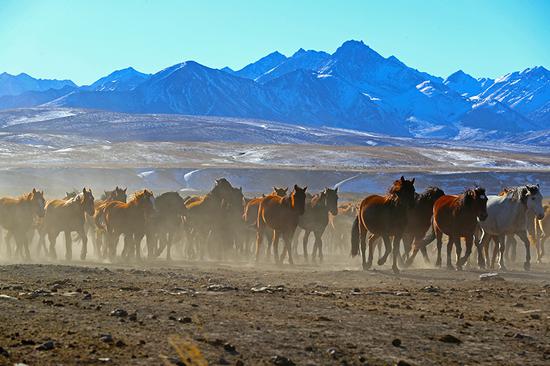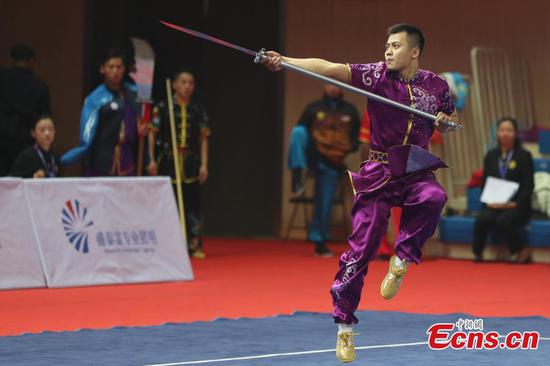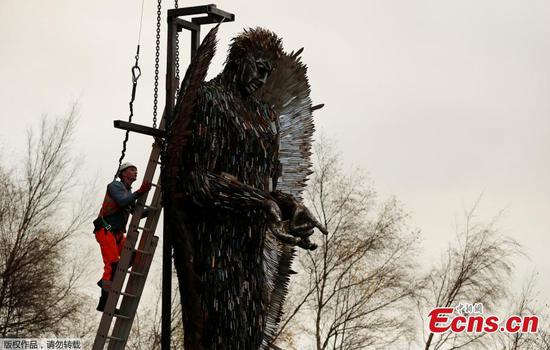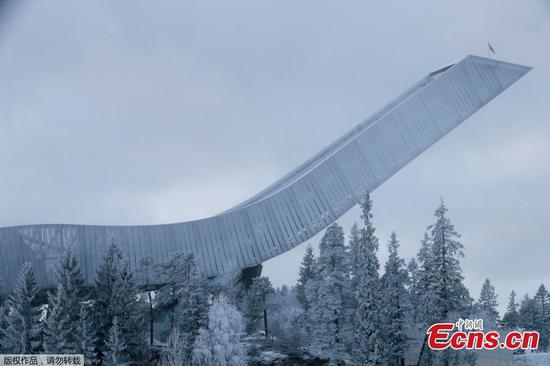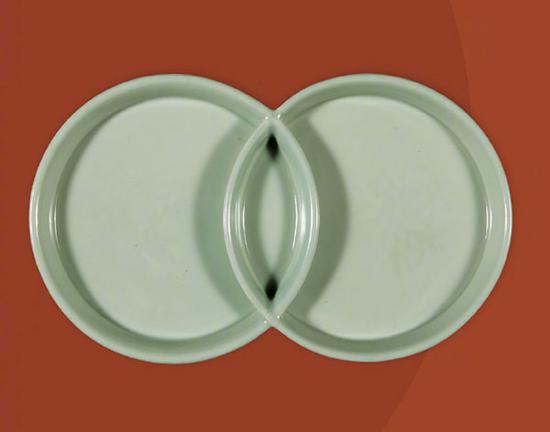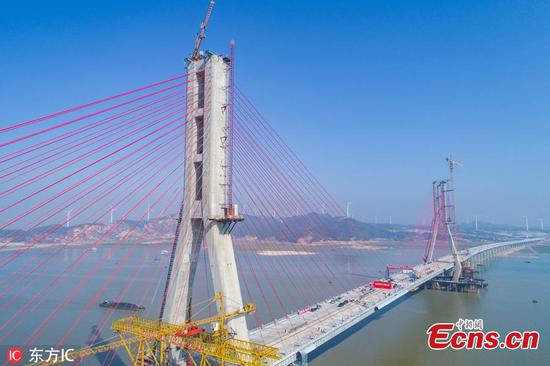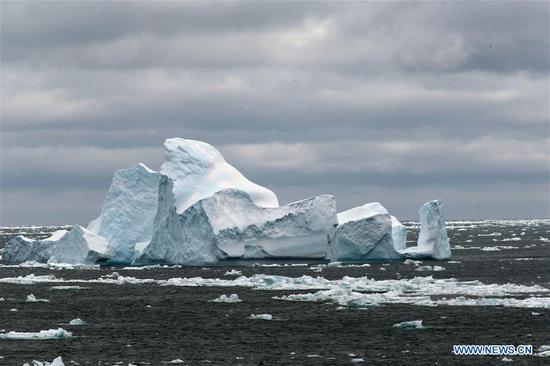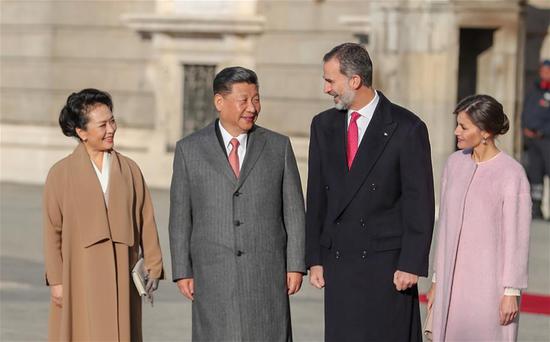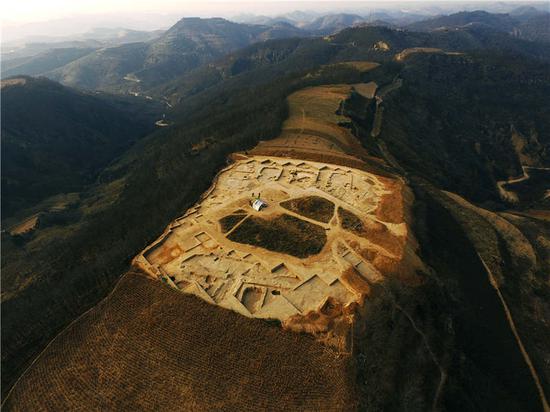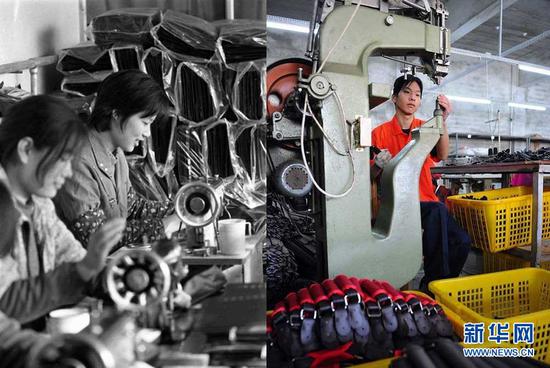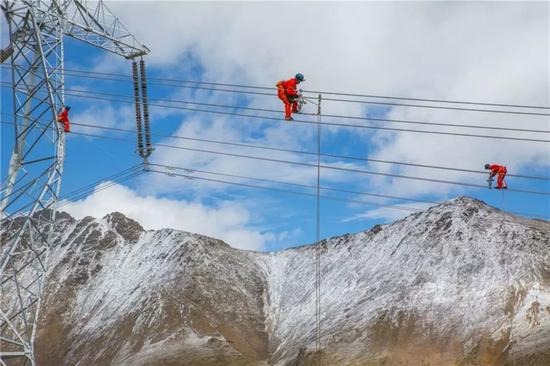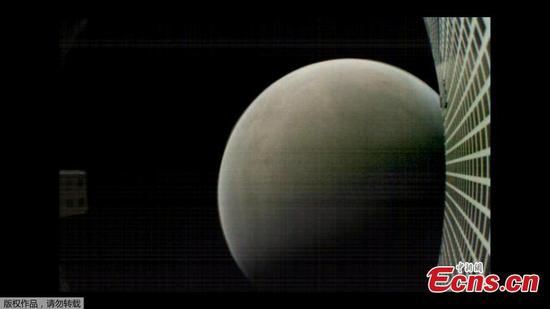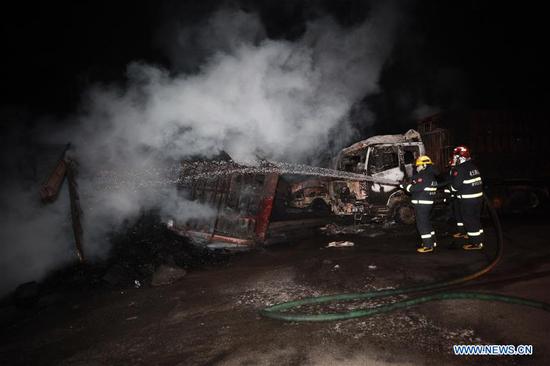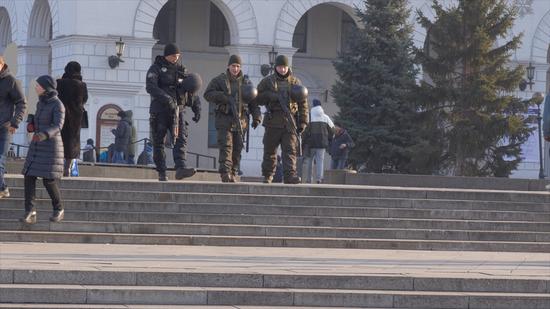
Ukraine's National Guard in full battle gear patrolling the center of Kiev. (CGTN Photo)
But U.S., Britain pledge support for Ukraine amid Kerch Strait tensions
The European Union is aiming to de-escalate tensions between Kiev and Moscow this week after Russia seized three Ukrainian navy ships and their crew, amid concerns about putting fuel on the fire, diplomats and analysts said.
The bloc is aware of the risk of playing hardball against Russia, which already has extremely tense relations with Ukraine.
That's why the EU on Wednesday condemned Russia's actions, but snubbed Ukraine's call for further sanctions against Moscow, at least for now.
German Chancellor Angela Merkel told the Bild newspaper she wanted Ukraine to be "sensible" and help lower tensions through dialogue.
"The issue (of sanctions) is still on the table. It's among the options. But for the moment the priority is to encourage each side to de-escalate, to try to put out the fire," a high-ranking European diplomat said.
If Russia continues to block passage through the Kerch Strait off Crimea, where the navy incident took place last Sunday, and refuses to free the Ukrainian sailors, then the question of sanctions could be discussed at an EU foreign ministers' meeting in two weeks' time, he said.
Relations between Russia and Ukraine have been deteriorating since Crimea was incorporated into Russia in March 2014 following a local referendum, which was rejected by Ukraine and Western countries.
The United States and the United Kingdom pledged their support for Ukraine over the tensions.
According to the Ukrainian government-run Ukrinform news agency, U.S. Ambassador to Ukraine Marie Yovanovitch called for the de-escalation of the tensions and urged Russia to release the Ukrainian sailors.
British Ambassador to Ukraine Judith Gough said Britain condemns Russia's actions and stands ready to assist Ukraine in boosting the capabilities of its navy. "We will work for the development of the Ukrainian Navy".
Moscow has said it can exercise its sovereign rights in nearby waters off Crimea, and the Kerch Strait is not an international passage.
The West is also wondering whether Ukrainian President Petro Poroshenko is "seeking to benefit politically" from the incident, said Jan Koehler, a political analyst and expert on post-Soviet history at the Free University of Berlin.
Poroshenko has signed an act imposing martial law for 30 days in response.
He also said on Thursday that the Constantinople patriarchy has approved a decree granting the Ukrainian Orthodox Church independence from the Russian Orthodox Church, a major boost to the president's approval ratings.
The Ukrainian church has formally been under the Russian Orthodox Church for centuries, so this step would be momentous, splitting the world's largest Eastern Orthodox denomination.
While anti-Russian rhetoric played well with Ukrainians, Koehler noted that the law might be to give Poroshenko's low poll figures a lift ahead of a March 2019 re-election bid.
Francois Heisbourg, head of the International Institute for Strategic Studies in London, said Ukraine was looking to use the navy incident to swing the West even more strongly to its side.
"It would be a mistake to let them believe that if they escalate things that we would just follow," he said.











